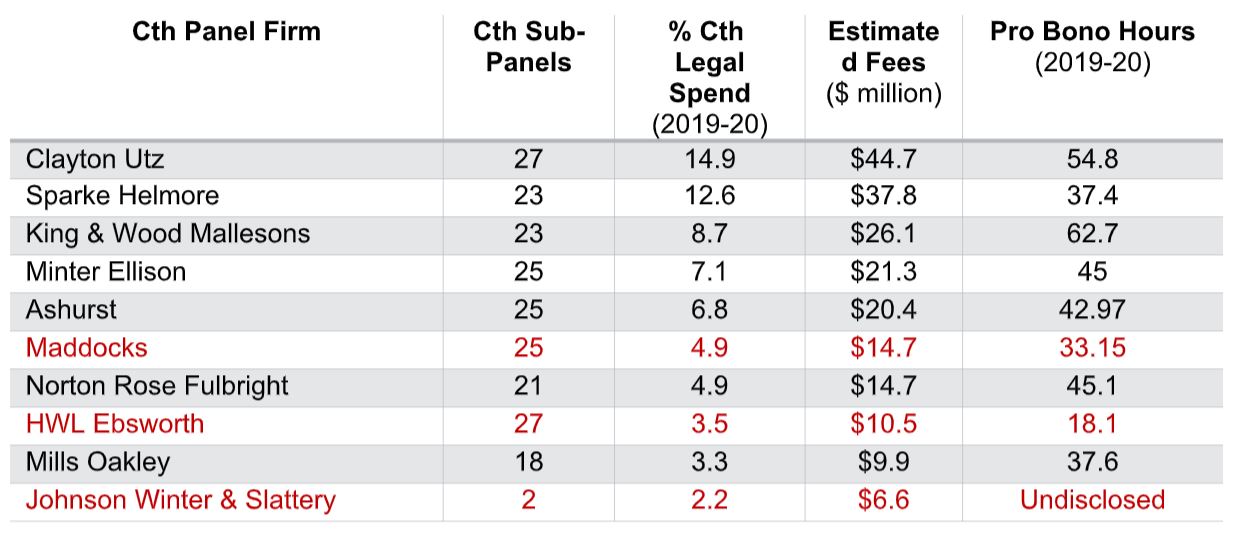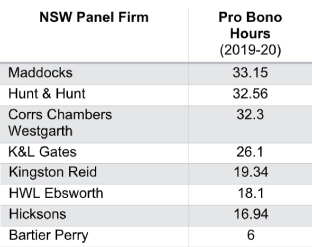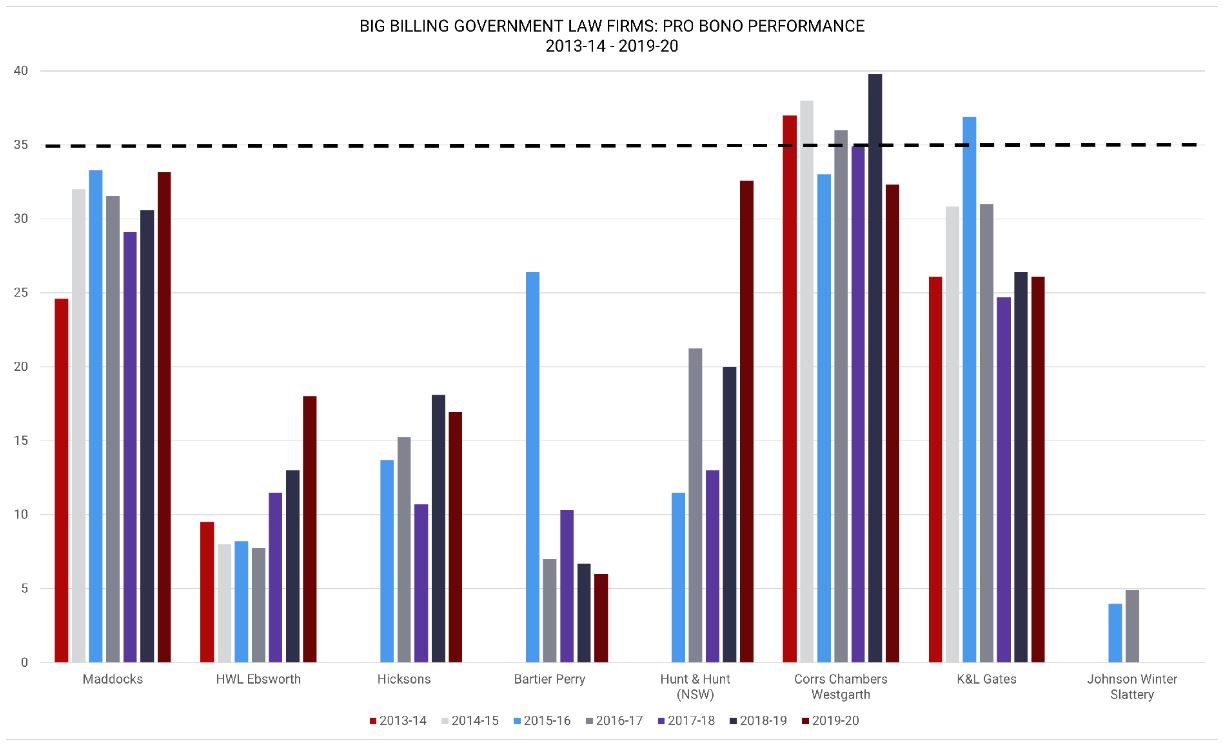Powered by MOMENTUM MEDIA
Duty has not motivated so many of Australia’s leading government law firms to commit to pro bono work. The only thing that will be is by making the achievement of the pro bono target an enforced contractual obligation, writes Jacqueline Burns.

The Labour Party in the United Kingdom has put its support behind the creation of a state-run national pro bono centre and would require law firms to meet a pro bono target if they want government contracts.
In the UK, lawyers purportedly provide just £7 million in pro bono advice each year.
What’s exciting about the UK Labour Party’s plans is the pro bono target (proposed to be at least 35 hours per lawyer per year) would be binding for law firms that do government work.
In Australia, pro bono is not obligatory – it’s thought of as more of a moral duty.
An aspirational pro bono target was introduced in Australia in 2007. And while it’s notable that the current signatories collectively contributed 641,966 pro bono hours in the 2021 financial year, what’s more remarkable is how many, and which, firms neglect to do their bit.
The Australian Pro Bono Centre’s (APBC) 14th Annual Performance Report of the National Pro Bono Target acknowledges that fewer than half (45 per cent) of the target signatories met or exceeded the Target.
In releasing the report, APBC chair Phillip Cornwell noted: “… it is a shame that quite a few firms, including large firms, are falling well short of the Target, and missing out on the considerable benefits that flow from undertaking pro bono work. Not the least of these benefits is fulfilling the pro bono requirements imposed by governments and the growing number of ESG-minded corporates as a condition of membership of their legal panels.”
Though the APBC masks the data submitted annually by signatories, governments do not.
The 2019-20 Legal Services Expenditure Report, produced annually by the Attorney-General’s Office of Legal Services Coordination, revealed that, in that financial year, the Commonwealth spent $335 million in legal fees. This excludes the fees paid to the Australian Government Solicitor.
There are currently 62 legal services providers on the Whole of Australian Government Legal Services Panel.
Noting that up to 10 per cent of expenditure can be off-panel, it’s reasonable to propose that those 62 legal services providers shared $300 million in fees in 2019-20.
Of those 62 providers, 38 did not meet the pro bono Target that financial year.
Among the 38 under-performers are three of the Commonwealth’s ten highest billing law firms:

The situation in NSW is much the same. The 2019-20 NSW Government Legal Services Panel Annual Report shows there are 40 firms on the NSW Government Legal Services Panel. In 2019-20, those firms shared $142.5 million in legal fees.
Of the 40 firms, just 14 achieved the pro bono Target in 2019-20.
Among the 26 firms that did not commit to pro bono are eight firms that rank among the NSW government’s top billers. And once again, Maddocks and HWL Ebsworth are at the top of the list.
Table 2 - NSW Government Top Billing Law Firms That Do Not Achieve the Pro Bono Target

It is unfair to critique a firm based on its performance in a single year. A better indicator of commitment is long-term data.
Analysis of the data submitted since the 2013-14 financial year paints a reasonably clear picture of the named firms’ pro bono commitment and strategy.
It is apparent which government law firms have structured pro bono programs in place, which get by occasionally taking on a pro bono matter, which are trying to make amends, and which are making a pretence of their pro bono commitment.

The UK Labour Party’s policy makes sense. Duty has not motivated so many of Australia’s leading government law firms to commit to pro bono work. The only thing that will be achieved is by making the achievement of the pro bono target an enforced contractual obligation.
It’s high time all layers of government hold their external legal services providers accountable.
Procedural fairness alone should demand panel firms be suspended or terminated for not meeting their pro bono obligations, especially when the behaviour is ongoing.
If any firm is struggling to establish and manage their pro bono program, they should ask for help – particularly if they are profiting from government contracts. There are no excuses. For government law firms, in particular, the cost of doing business includes the cost of doing pro bono.
Jacqueline (Jaci) Burns) is the chief marketing officer of Market Expertise.